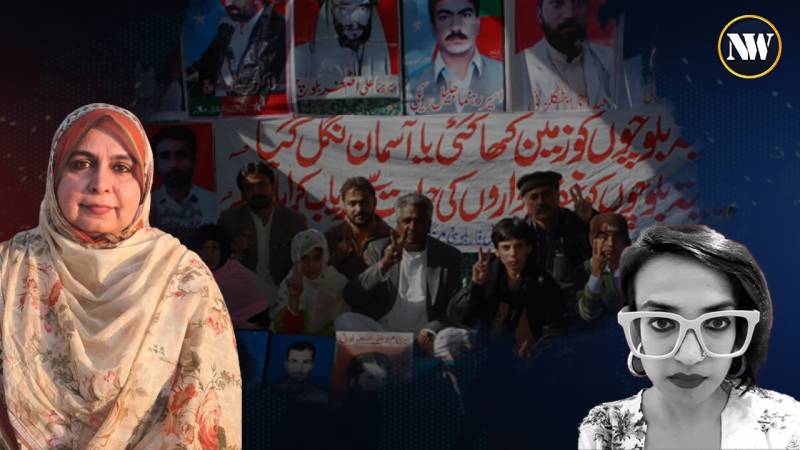Our nation grapples with a dark and pervasive issue – enforced disappearances. This distressing phenomenon, often perpetrated by state authorities, has shattered countless lives and left a trail of grief and unanswered questions. In a recent interview, we explore the journey of Amina Masood Janjua, Chairperson of the Defense of Human Rights in Pakistan, as she transformed from a victim into an unwavering activist, determined to bring justice to the victims of enforced disappearances.
Amina's journey into the realm of human rights activism began in 2005 when her husband forcibly disappeared. This tragic event marked the inception of her relentless fight for justice. Her story mirrors the experiences of countless other families in Pakistan who have faced the tormenting uncertainty of missing loved ones. Her husband's disappearance on July 30, 2005, served as the catalyst for her organization, Defense of Human Rights, which she co-founded with other affected families.
The interview highlights the alarming escalation of enforced disappearances in Pakistan, tracing back to the 1970s, 80s, and 90s. However, it gained strategic prominence after 2001 when General Musharraf utilized it as a cover for the "War on Terror." The evolution of this crisis reveals a disturbing pattern of state-sanctioned abuses.
Amina's account sheds light on the changing political landscape in Pakistan, with governments coming and going, promising justice but delivering little. From the era of Musharraf to the reigns of PPP, PML-N, PTI, and more, each administration offered pledges of resolution, yet the fundamental issue remained unaddressed. Proposed legislation aimed at tackling the crisis often stalled in the labyrinthine parliamentary process, illustrating a dire lack of political will to effect change.
One of the key focal points in the interview is the Commission Against Enforced Disappearances, a body tasked with addressing these grave human rights violations. Amina articulates her disappointment with the commission, describing it as a mere data repository or "post office", rather than an effective instrument for justice. Despite its mandate to conduct inquiries and hold the perpetrators accountable, the commission's record is marked by inaction and failure to bring justice to the victims.
Amina's interview emphasizes the unity of families and activists across regions, ethnicities, religions, and cultures. In a nation grappling with political and social divisions, the issue of enforced disappearances has become a unifying force. Families, mothers, daughters, and activists have joined hands to demand justice for their missing loved ones. The interview reveals how, despite facing repression and punitive measures, these activists continue to champion the cause, transcending boundaries and differences.
The discussion unveils a lesser-known aspect of enforced disappearances – internment centers. These facilities operate without legal basis and often resemble Guantanamo Bay in their treatment of detainees. Families struggle to establish contact with their loved ones confined within these centers, where conditions are harsh and grim. The existence of these centers raises troubling questions about the state's commitment to human rights.
Throughout the interview, Amina's unwavering determination and resilience in the face of seemingly insurmountable challenges showcase the indomitable spirit of those seeking justice. Despite the lack of accountability and the persistent struggle against enforced disappearances in Pakistan, Amina's dedication offers a ray of hope that someday, the truth will prevail.

